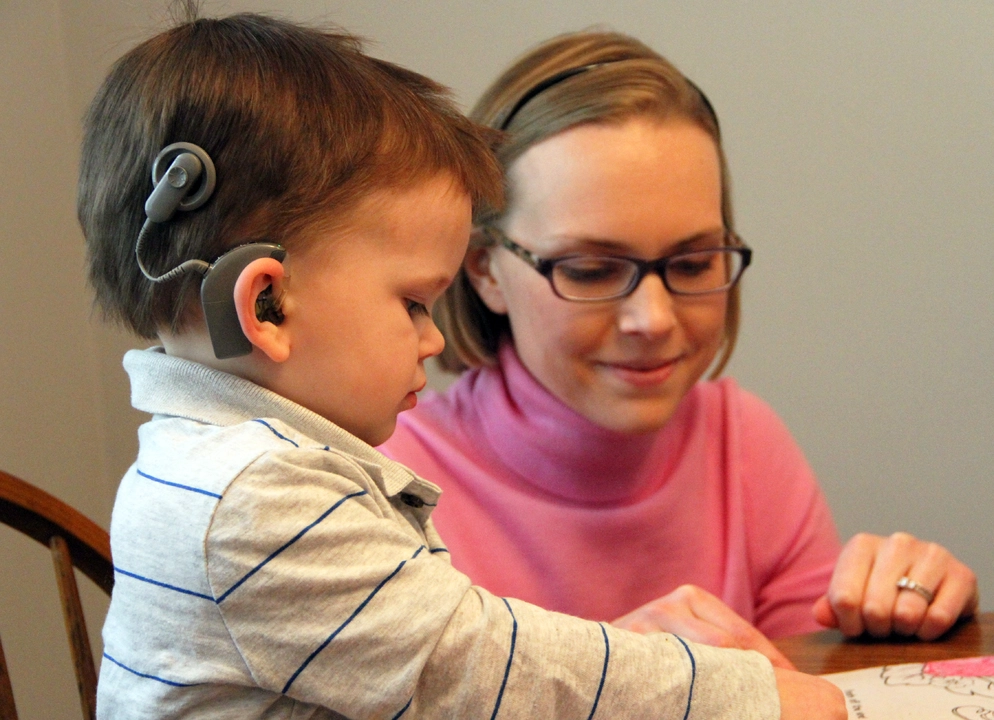
Understanding Hearing Difficulty
Before we dive into the specific tips and strategies to improve communication with someone who has hearing difficulties, it's important to understand the basics of hearing loss. There are different types and degrees of hearing loss, ranging from mild to profound. Hearing loss can be caused by various factors, such as aging, exposure to loud noises, illness, or genetics.
When communicating with someone who has hearing difficulties, it's crucial to be patient, understanding, and ready to adapt your communication style to their needs. Keep in mind that this person may have to put in extra effort to understand you, which can be exhausting and frustrating at times.
Facial Expressions and Gestures
One of the most effective ways to improve communication with someone who has hearing difficulties is by using facial expressions and gestures. These nonverbal cues can help convey emotions and clarify your message, making it easier for the person to understand what you're saying. For example, smiling when greeting someone can instantly show warmth and friendliness, while raising your eyebrows can indicate surprise or curiosity.
When using gestures, try to keep them simple and clear. Exaggerated gestures can be confusing and may even come across as patronizing. Be mindful of your body language, as well. Maintaining an open posture and avoiding crossing your arms can help create a more inviting atmosphere for conversation.
Positioning and Lighting
Proper positioning and lighting are essential when communicating with someone who has hearing difficulties. Make sure to face the person directly, maintaining eye contact as much as possible. This allows them to read your lips and facial expressions more easily. Avoid covering your mouth, as this can make lip-reading difficult.
Ensure the room has adequate lighting, as this can also greatly impact the person's ability to read your lips and facial cues. However, be careful not to position yourself with a bright light source, such as a window, directly behind you, as this can create a silhouette effect, making it difficult for the person to see your face clearly.
Speaking Clearly and at a Moderate Pace
When communicating with someone who has hearing difficulties, it's crucial to speak clearly and at a moderate pace. Avoid mumbling, slurring your words, or speaking too quickly, as this can make it challenging for the person to understand you. However, don't exaggerate your speech or speak too slowly, as this can also be confusing and may come across as condescending.
Instead, aim for a natural, steady pace, enunciating each word clearly. If the person is having trouble understanding you, try rephrasing your statement or using simpler words rather than repeating yourself verbatim.
Minimizing Background Noise
Background noise can make it extremely difficult for someone with hearing difficulties to understand you. When possible, try to minimize background noise by choosing a quiet location for your conversation. If you're in a noisy environment, consider moving to a quieter area or waiting until the noise has subsided before resuming your conversation.
If you cannot avoid background noise entirely, be mindful of your voice's volume and pitch. Speak loudly enough to be heard but avoid shouting, as this can distort your speech and make it harder to understand.
Using Visual Aids
Visual aids can be incredibly helpful when communicating with someone who has hearing difficulties. If you're discussing a specific topic or presenting information, consider using visual aids such as photographs, diagrams, or written notes to help clarify your message. This can be especially useful in group settings or when discussing complex ideas.
When using visual aids, be sure to give the person enough time to process the information before moving on to the next point. Encourage them to ask questions or request clarification if needed.
Utilizing Technology
Thanks to advancements in technology, there are numerous tools and devices available to help improve communication with someone who has hearing difficulties. Hearing aids, cochlear implants, and assistive listening devices can significantly enhance a person's ability to hear and understand speech.
Additionally, smartphone apps and text messaging can be beneficial, especially in noisy environments or when discussing complex topics. Keep in mind that every person's needs and preferences may be different, so it's essential to discuss these options with the person and determine what works best for them.
Learning Sign Language
Learning sign language can be an incredibly valuable skill when communicating with someone who has hearing difficulties, especially if they rely on sign language as their primary mode of communication. There are various sign languages, with American Sign Language (ASL) being the most widely used in the United States.
While learning an entire language may seem daunting, even knowing some basic signs and phrases can greatly improve communication between you and the person with hearing difficulties. There are numerous resources available, such as online tutorials, community classes, and books, to help you learn sign language.
Being Patient and Supportive
Perhaps the most important aspect of communicating with someone who has hearing difficulties is being patient and supportive. Understand that they may need extra time to process information or may ask you to repeat yourself. Be willing to adjust your communication style as needed, and don't become frustrated or impatient if the person struggles to understand you.
Encourage open dialogue about their communication preferences and needs. Ask how you can best support them and be open to feedback. By fostering a supportive and understanding environment, you can significantly improve your communication and strengthen your relationship with the person who has hearing difficulties.




Pradeep Meena
May 28, 2023 AT 00:36Dale Yu
May 28, 2023 AT 08:11Kshitij Nim
May 28, 2023 AT 10:00Scott Horvath
May 28, 2023 AT 18:20Armando Rodriguez
May 29, 2023 AT 10:27jennifer sizemore
May 30, 2023 AT 00:14matt tricarico
May 30, 2023 AT 05:24Patrick Ezebube
May 30, 2023 AT 12:01Kimberly Ford
May 30, 2023 AT 20:33jerry woo
May 31, 2023 AT 15:52Jillian Fisher
June 1, 2023 AT 13:19Rachel Marco-Havens
June 2, 2023 AT 05:08Kathryn Conant
June 2, 2023 AT 11:33Jules Tompkins
June 3, 2023 AT 06:36Sabrina Bergas
June 3, 2023 AT 13:57Melvin Thoede
June 4, 2023 AT 01:03Suzanne Lucas
June 4, 2023 AT 20:17Ash Damle
June 4, 2023 AT 21:44Kevin Ouellette
June 5, 2023 AT 16:34Tanya Willey
June 6, 2023 AT 00:20